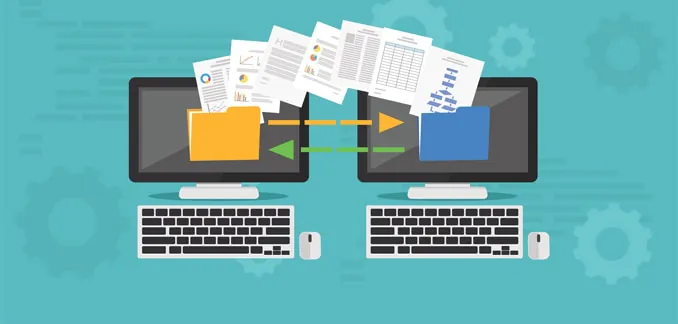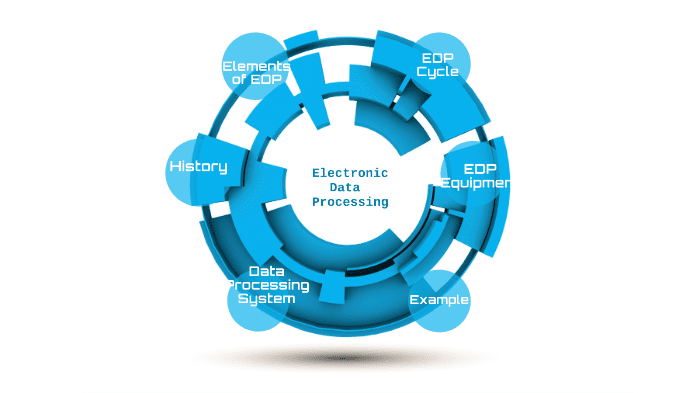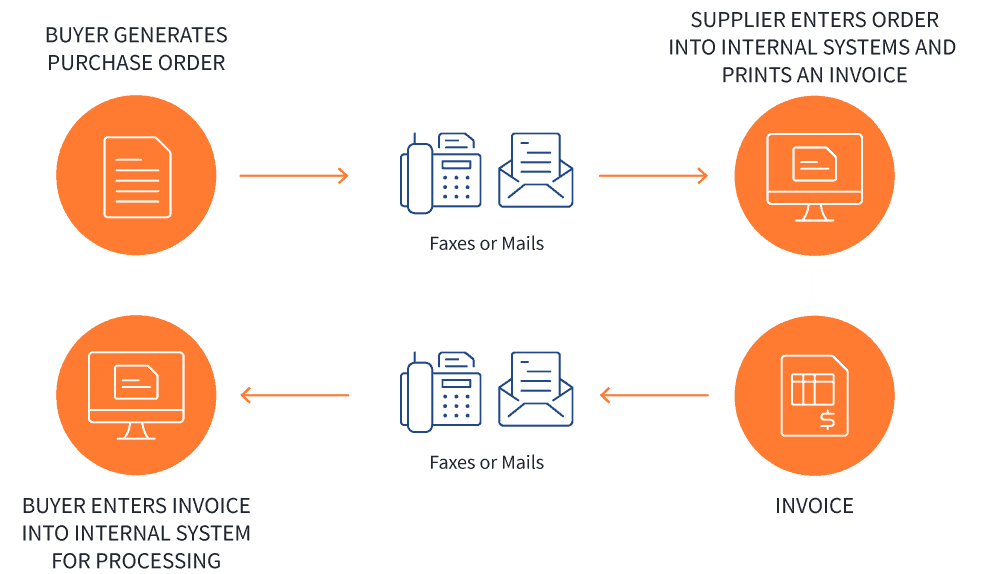
What is Electronic Data Processing (EDP)?
Businesses gather tons of data daily however it is not always easy to understand information for effective implementation. To solve this challenge data processes have shape-shifted over the years and turned into popularly used methods of thriving industries. One of the trusted and safest methods to process data electronically is Electronic Data Processing. According to the National Institutes survey, EDP is the “computer-to-computer transfer of perfectly formatted texts represented in documents.”
If you belong to a small startup or you are a part of a prestigious institute the size of your organization does not matter as the nature of data is different in all businesses. Data vary when in a structured or unstructured manner or even uncollected. You can efficiently manage sets of data using the Electronic data processing approach.
What is Data Processing?
If we have to put it in simple words, data processing corresponds to data collection and data conversion of data sets to derive a meaningful outcome. A fast and secure way of processing significant data results is described as authentic data processing method. A data processing system is made up of components like devices, data resources, and a predefined path which is used for input to produce sound output. There are three main types of data processing namely;
Manual Data processing.
Automatics Data processing.
Electronic Data processing.
What is Electronic Data Processing?
Electronic data processing or EDP is the most popularly employed data processing system as it is the solely automated data processing program to provide secure, quick, and hassle-free information processing design to produce the right kind of data quality. Regardless of the volume of your information demands EDP can earn you greater profit with its advanced administration of your company databases. You can gather all sorts of information such as archives, solicitations, telephone discussions, or meeting minutes via the EDP methodology. Therefore, electronic data processing is the best available option for accurate data sets processing. EDP is the preparation of information by an automated system and its projects in a scenario involving digital correspondence.
Top 10 Benefits of Electronic Data Processing
The below mentioned top 10 benefits will leave you thinking to switch your business module to EDP right away –
Effective Version Control
With EDP you get to enjoy effective control over your company data sets. EDP operates in rendition control to automatically form reports and get you unlimited access to archives history at the same time. Therefore, you can easily maintain and manage your records inside the EDP without having to worry about challenges related to duplicates of report disperses.
Smooth Collaboration
Collaboration with vendors in life sciences is becoming more and more advanced as we tend to outsource business development operations and partnerships are becoming commonplace. EDP brings us the long-awaited advantage of effectively improving business operations with the use of web-based workflows.
Better Timelines
Time is equally valuable in business development as well. EDP offers tools to drive an efficient document management process to enter documents automatically using the digital platform. EDP also speeds up the whole process to timely generate reports and records. This assists in improving your business submissions.
With EDP No Emails
An email is an exciting way to work but most of us spend a long time thinking about composing its structure and content. Most of the time email is unstructured and difficult to manage on your own especially when there is a long list of contacts. To sort out your email storage and security concerns EDP system removes the need to view the information via email.
Security and Control
Better control and safe security are the topmost priority especially when data is sensitive. However, extracting data from paper is very difficult when done manually. EDP helps to achieve successful and timely use of audit trails by protecting our information reserves.
Authentic Backups
If you are not aware of the validity of your content, it becomes even more challenging to ensure you have accurate information backup available. When saving documents to a local folder on a computer is evidence that there is no accurate content backup available at the time of need. Such information is prone to viruses and human error. Here EDP comes to the rescue by concentrating all records and documents in one location which improves the business’s ability to back up all content at the same time.
Cost-Effective
Nowadays documentation management is indeed really expensive especially if your business has just started. A long list of records needs to be regulated in time. Using EDP we can easily manage, process, store, and even put to use records in an electronic surrounding. Nonetheless, EDP is a reliable solution for every business that wishes to go paperless.
Better Management
EDP is a much safer option for anyone who wants to cut short manual labour. One can easily search any piece of information stored within your computers using EDP. In this way, businesses can improve their product decision-making by generating ample knowledge from stored content. It reduces the overall time required to look up content.
Compliance
An EDP offers us all essential documentation processing services like better management, audit trails, backups, security, and cost-efficiency. In addition to the use of document workflows, document lifecycle management proves to be good compliance.
Reliable Content
An EDP offers controlled business management and easy document revision management. Electronic documentation processing helps to automate the PDF publishing process to ensure all content is accurately published in a uniform format. With EDP by your side, your content is saved and retrieved for usage in a well-managed approach.
Electronic Data Processing Processes
The electronic data process involves three simple steps these steps are briefly described as follows;
The Input Stage
In the initial step of the process, data is collected from multiple sources using sources like workflows, keywords excel sheets, etc. certain components are also termed necessary for data input into the data processing system such as Server, Desktops Terminals, etc.
The Processing Stage
In the second step, data is used to perform different actions like capturing a code application, performing encryption, and word-to-word translation. This stage is very important to generate your desired output.
The Output Stage
In the final step of the data processing process, data is safely converted to any modified format like a document, report, or product.
Concluding Remarks –
To conclude, EDP is a wise choice and the best approach to data processing as compared to other manual and time taking data processing options. EDP is the most commonly used protocol in the B2B world. Therefore, if you wish to make a new start in your business you should consider investing in EDP for a thriving business regime. If you are interested in ITS Document Conversion Services, you may ask for a free quote!





